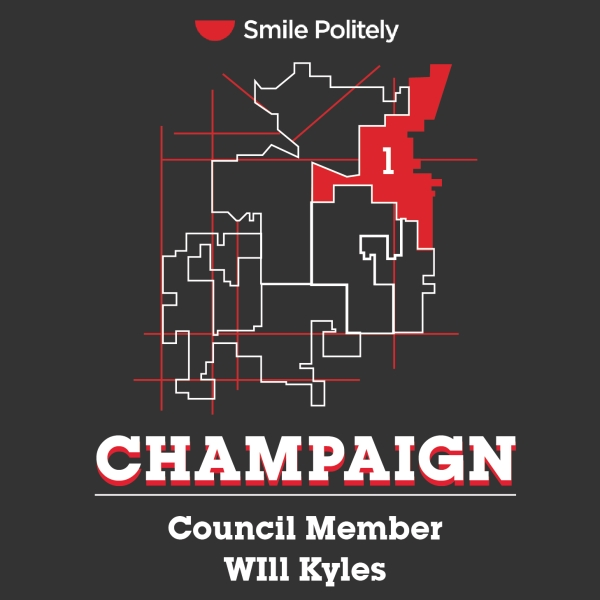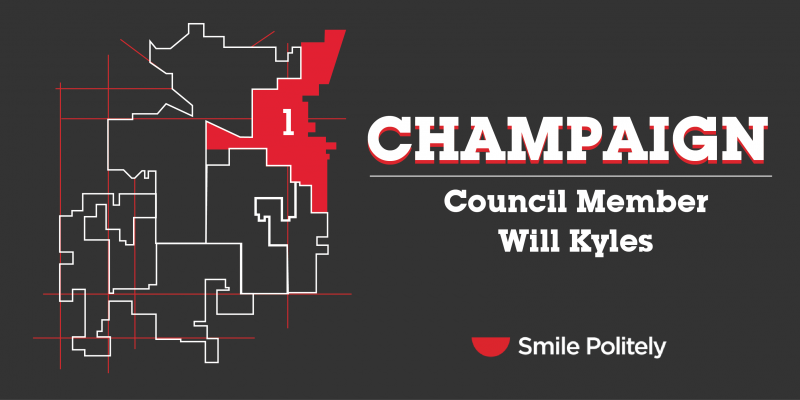
Champaign City Council member Will Kyles chatted with Rebecah at Cafe Kopi as part of our ongoing series on local public officials. Here’s what he had to say.
Question 1.
Smile Politely: What are your connections to the city of Champaign? Are you from here originally?
Will Kyles: I was born and raised in Chicago. I was blessed to come down here to start a life about 11 years ago. I went to Parkland and U of I and was in the military — my army reserve was based in Urbana. As far as roots to the community, I didn’t have any. I believe God was pulling me to be here.
In a bigger city, you have a bigger pool of people, so you don’t know everybody. For me, going from a city with over a million people to a city with 80,000, there were more chances to work with people. This is a relational type of community. You can run into the mayor or superintendent. You can work with leaders in your community.
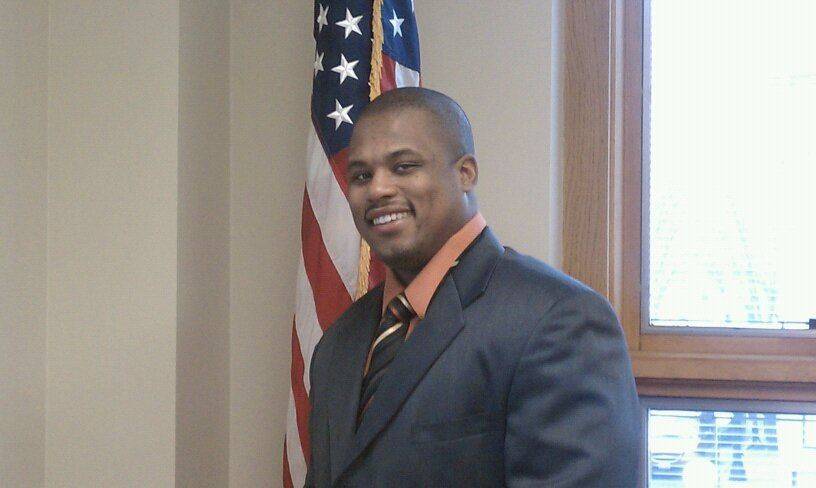
Question 2.
SP: What is your professional background?
Kyles: I majored in political science at the University of Illinois. I worked with Congressman Tim Johnson when I graduated, and before then I did pretty much every job. I’ve worked at Kraft for the last 10, going on 11 years. I’m a sanitation coordinator, which essentially is quality control.
Question 3.
SP: How did you get involved in city council?
Kyles: I think a lot of it stemmed from actually seeing how government works. When I worked with Congressman Johnson, I saw people were looking for someone to represent them, but also someone to help them get through the red tape. And I had a relationship with a former councilwoman, Gina Jackson. She asked me to consider council, thinking I would be a good person to run. From there, the rest is history. I ran and was elected.
Question 4.
SP: What issues have most captured your attention during your time on city council?
Kyles: Economic development and police/community relationships, because of things we’ve gone through in the last few years. Economic development is the centerpiece. When people are doing well economically, in general, they don’t have the same issues as those who aren’t doing well economically. I’ve been reading about Maslow’s hierarchy of needs. He has a very interesting perspective. He talks about everything humans need, from physical safety to self-actualization, and how we need more basic things before we can start thinking about self-actualization. What I’ve found is that most people are juggling back and forth between their physical needs and safety needs. If you can’t meet those needs, a lot of time your community involvement doesn’t happen. If you get to self-actualization, finding your purpose, community involvement and everything else happens. But many people go back and forth between those first two. If your physical and safety needs aren’t taken care of, it’s not that you don’t find citizen involvement relevant, it’s just that you’ve got to eat. Once you understand how to find a balance between survival and developing the community—and I don’t pretend to have found that yet—you get more and more citizens involved.
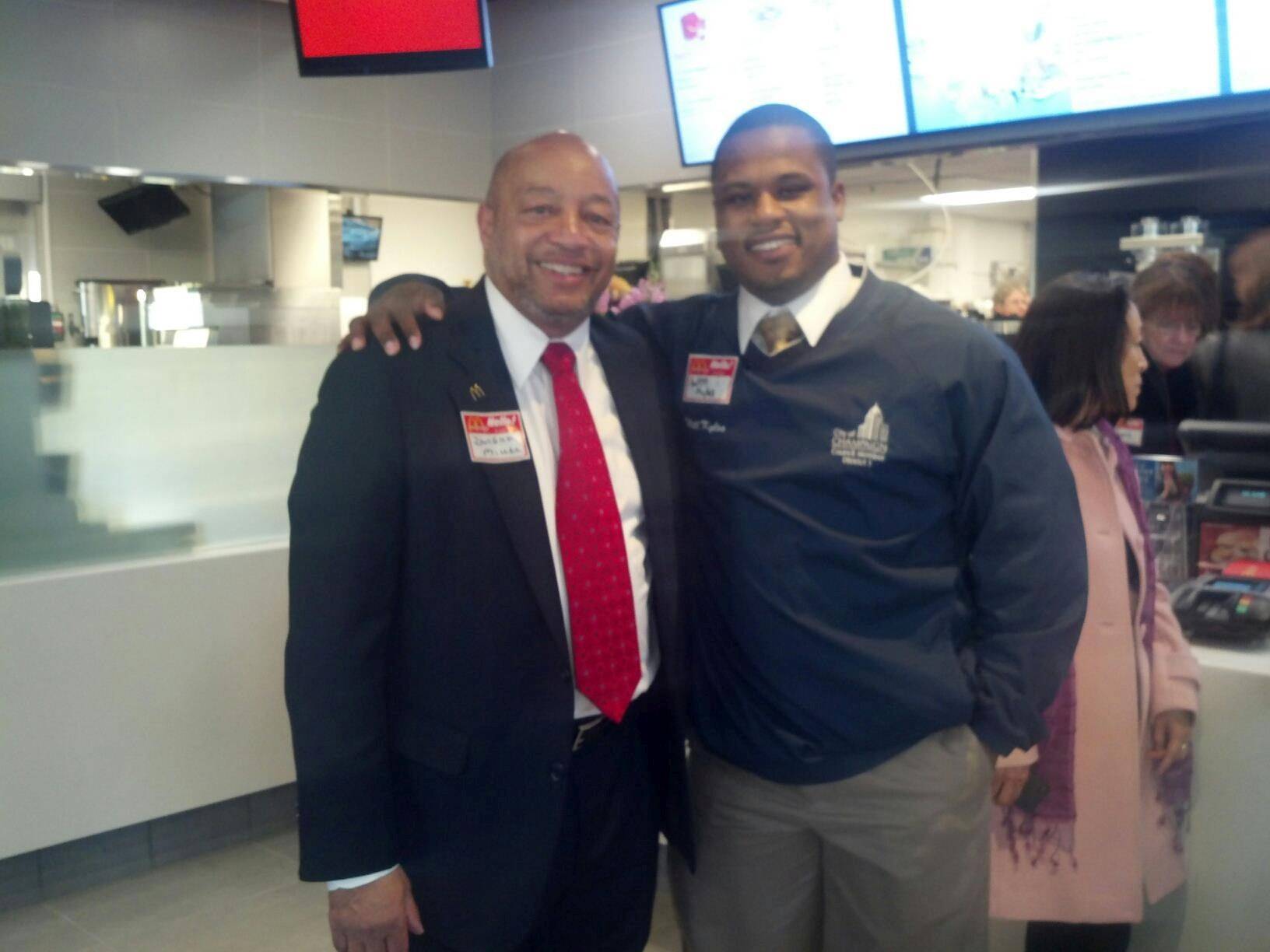
Question 5.
SP: What do you think your district cares about?
Kyles: I would say economics and police/community relationships. But also affordable housing. Those are one, two, and three.
I think all those concerns boil down to quality of life. There’s a certain standard quality of living that everyone wants. They want to live in good neighborhoods and in peaceful communities.
Question 6.
SP: Has their been a time when your constituents disagreed with a way that you represented them?
Kyles: I think really there haven’t been many times when there was disagreement. The only one I can think of was the 5th and Hill issue, because we did not repeal the ground water ordinance in its entirety. I got more public scrutiny for that than anything. From my standpoint, and when I talked to some other individuals, it wasn’t necessarily our ordinance that was preventing them from doing the cleanup. My stance is that the Illinois Environmental Protection Agency should hold Ameren accountable. Being transparent with the community, and working with the neighborhood rights group is something I’ve been working on since then.
The positive note is that instead of me hiding, I continued to work with groups like the 5th and Hill Neighborhood Association. In a smaller community, there’s nowhere to hide. I still work with the constituents that disagreed with raising the sales tax. Instead of avoiding them, I continued meeting them and working through the disagreements.
Question 7.
SP: You’ve mentioned that economic development is important to you. How do you think Champaign is doing in terms of business development?
Kyles: Champaign is definitely progressing in terms of business development. The Hyatt is one of our signature pieces. The amount of construction work we do per year is huge. And we’re working on developing downtown, like bringing the Black Dog here. We’re in the process of talking to the Champaign County Visitors Bureau, 40 North, the Champaign Center Partnership; those are examples of groups we work with to help improve Champaign.
But when I talk about economic development, I’m also talking about ensuring that we have equal access. When you start talking about certain communities and their ability to advance or be stagnant or even decrease in quality of life, a lot of it is tied to economic development. Having access to small businesses and government contracts to be able to do work with the city is crucial. Making sure union workforces are diverse. We need to have diverse work settings.
The census came out recently, and in Champaign-Urbana, our Asian population, our Hispanic population, and our African-American population are all growing. People want to see a reflection of that diversity in labor and businesses.
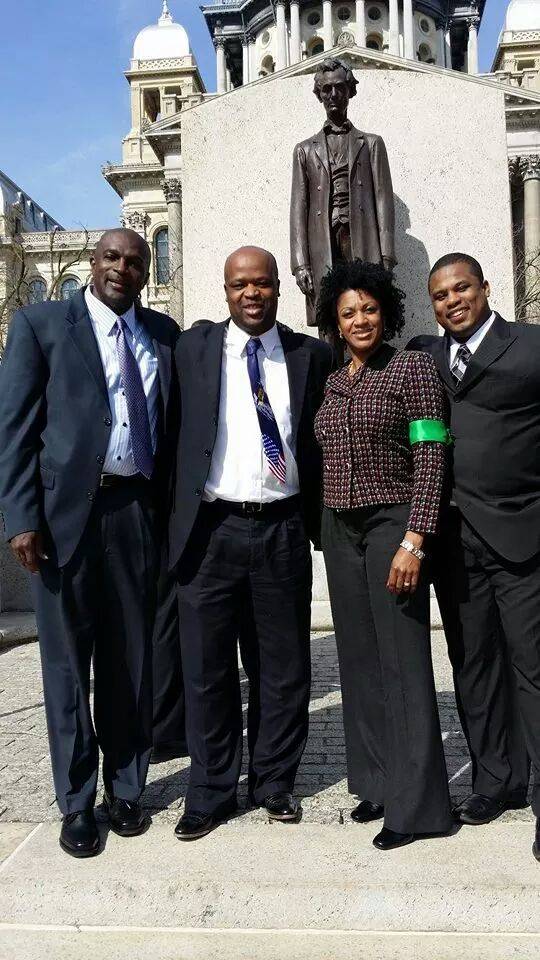
Question 8.
SP: How would you characterize the relationship between Champaign and Urbana? Do you think the two cities ever feel a sense of competition in terms of economic development?
Kyles: Competition is a strong word. Each city has its pride. That’s one thing you learn to notice when you come from another place—each city has its own identity. But the people in our communities travel so closely together. We exchange commerce, share sports, and attend the same events. We’re crossing the city lines back and forth all the time. I think it’s just a matter of maintaining our identities while continuing the relationship we have together. I don’t think you want to maintain your identity so much that you miss the opportunity to come to consensus. The cities are so closely related, and the U of I ties the community together. We have a lot of opportunities to work together.
Question 9.
SP: Would you change anything about how Champaign city government works?
Kyles: I think that we need to continue to evolve in terms of transparency. I think processes that we use should continue to be evaluated in terms of best practices. We need to continue to work to be a number one destination spot for not just people in Illinois, but for people all over the country. We need to be that community that reflects diversity where people of all ethnic backgrounds are able to prosper. The more we continue to work on the tougher issues, the better we will get.
The one thing I will say about the city of Champaign that I enjoy is that with its open government, we have the opportunity to work together on tougher issues, one of them being race. Race is a tough issue. We have our progress, we have our wins, and we need to be able to continue to evolve. We’re living in a time when our world is changing. What we are doing is going to determine how people view us in the next five, ten, or twenty years. I like to say we’re evolving as a city, and we need to have tough conversations to do that.
Question 10.
SP: How would you describe your political philosophy?
Kyles: I’m definitely independent. I’m Republican by party affiliation. But I live in a primarily democratic district. Over 85% of my district is democratic. So I have an independent philosophy. When we start to talk about issues, oftentimes I have a record or history of looking beyond the ideology and going more toward the human aspect of what we’re here for. I think you can’t put everything in a Republican/Democrat format. You can’t put ideology before you put needs. We’re here to serve the people. Yes, we want to have limited influence from government — limited government is the phrase — but there are times when without government interaction, there would be no progress. When those times arise, you’ll often see me drift more towards the human side.
Question 11.
SP: Who are your political heroes?
Kyles: Martin Luther King, Jr., if you could think of him as a politican. Obviously he was a pastor, but he did so much with the Civil Rights Movement. And Abraham Lincoln, being from the land of Lincoln.
And Cory Booker. I don’t have a personal relationship with him, but one of the things that impressed me was that he decided to live in a low-income community. He worked hand-in-hand with the police department to help resolve crimes in the community. He participated in a way that most people wouldn’t have participated. He taught people, and he was an activist in the community.
Also, the Reverend James T. Meeks. And his wife, Jamell. They were at my home church in Chicago. They lived in the community for a long time, and they built a church in a community that a lot of other people would have passed over. They did a lot of radical things. If there was anything that really impacted my philosophy about church, faith, and how we can improve the world, it was being at Salem Baptist Church.
Question 12.
SP: You’ve mentioned that police/community relations are a passion of yours. How do you think the city of Champaign has done in the aftermath of the Kiwane Carrington shooting?
Kyles: Again, I think we’re evolving. I think the city, community, and council have worked together to ensure that that tragedy doesn’t happen again. I think now at this point we all agree that that shouldn’t happen. We’re working on balancing the relationships: respecting the community and also respecting the police. And looking at how communities get involved with police anyway—doing root cause analysis. We’ve done a good job saying that this should never happen again, but I think now we’re working on the things that cause negative actions between police and community in the first place. When you start looking at the root cause, then you start thinking in terms of how to decrease the likelihood that that kind of interaction would ever happen. We need to look at it from a holistic standpoint—how do we create positive images and environments for people. I think you have to go deeper to find that, and I think the city has been going deeper.
Question 13.
SP: What are your views on the upcoming Champaign mayoral election? Has it affected working with city council at all?
Kyles: Typically on council there is an unwritten etiquette that informs the way we do business. In general, I see the council members that are running for that position still trying to work together to represent the people of the city of Champaign. Politics become part of those decisions, maybe, but in general we are working together, and pushing things forward. If we allow the fact that there are several people running for office on the same board, then we disserve the people we should be serving. We are trying to make the best of that situation. I haven’t seen any causes for concern because of having three people running for the same position.
Question 14.
SP: What are your views on the debate over the Central High School location?
Kyles: That’s an interesting one. I actually thought if people wanted a central location, Dodds Park would be the best place. But I’m comfortable with the School Board’s decision of the Olympia Drive site. I think there are more conversations that need to happen about traffic and buses. But there’s a huge price tag for building in the city. If we’re talking about being more efficient with dollars, once all the cost analysis comes in, we’ll find it’s cheaper to build Central on the outer edges than the inner edges. I would have thought Dodds Park would have been the perfect balance. But that is the School Board’s decision. So it seems like the outskirts of town is the best option, even though travel is something on everyone’s minds.
Question 15.
SP: What places do you particularly enjoy in Champaign?
Kyles: I love Midtown. I love working out, so I spend a lot time at the Refinery or Douglas Park. I love eating at Old Chicago. And I spend a lot of time at Aroma Café.








